As Disabled People are effectively silenced by the latest conflicting guidance within the Access to Work award, we once again call for support for Disabled People in Enterprise to be placed within BEIS.
It’s hard to imagine that in a year when we celebrate the many achievements of disabled people, once again we see conflicting criteria within the Access to Work (ATW) award. Contrary to its stated intent and potential to lift disabled people out of poverty, it is now acting in ways which serve to remove the right to Advocacy and or Third Party Consent to assist with the application process.
It was shocking to be informed by advisors at the contact centre that this essential support, provided at the point of application and throughout the duration of the award, including review, ceased to exist three weeks ago. This move left disabled people and others who require support in the process unable to access the very support they require at the point of entry to the award or at review.
This move also comes amidst the ongoing difficulties faced by users of the service, which were outlined again recently at a focus group organised by the Inclusive Entrepreneur Network in the UK.
Sadly whilst the key area of practical support to disabled people in enterprise remains within the Department for Work and Pensions (DWP), these enterpreneurs automatically fall within a perceived regime. Focus group members consider this to result in a disproportionate regard to a false perception of misuse of the award. This view, according to the focus group, is over and above the stated intent of supporting disabled people into employment, increasing innovation and economic growth. They also see that this injustice is likely to continue.
So why is this such a blow to disabled people? We are tasked to create Inclusive Economic Growth and the ‘Paradigm Shift’ within the UN 2030 Agenda. This directive falls directly within basic human rights and the UN Sustainable Development Goals (SDGs) signed up to by our Government. With this change in policy, this moves the UK out of reach of attaining these goals and delivering the support required for disabled people to achieve economic independence, effectively silencing them in the process.
More importantly, why does this remit fit within the Dept. of Business Energy and Industrial Strategy (BEIS) and not the traditional realms of the DWP?
To answer this, let us first explore what we mean by Inclusive Entrepreneurship.
It is everything that Entrepreneurship can be - a concept or innovation; humanitarian, financial or socially-driven. It can lead to very simple yet practical innovation such as replacing plastic straws or introducing game-changing inventions like the smart curve mammograms.
It embraces failure as an essential step towards greater innovation.
Remember people like Sir James Dyson, Dr. Shirley Jackson, Thomas Edison, Marie Curie, Stephanie Kwolek … the list goes on. Along the way, they all have experienced failure, time and time again, prior to achieving their great successes.
The only and critical difference for disabled entrepreneurs is that they will require support both to become and remain an entrepreneur.
The resultant contribution to the growth of the economy from such enterprise is what we term Inclusive Economic Growth.
In the UK, there is a significant employment gap for disabled people. Disability Rights UK (DRUK) states that there were an estimated 3.7 million people of working age (16-64) with disabilities in employment between January-March 2018, an employment rate of 50.7%. The employment rate for people without disabilities was 81.1%.
Government has given a commitment to halving the employment gap that currently exists for Disabled People by 2020*. Yet the National Audit Office reports that the number of disabled people out of work has remained relatively static at 3.7 million and any growth of disabled people within the workplace is more likely to be down to more people who are already in work declaring a disability.
We also know from the Joseph Rowntree Foundation that one in six people who become disabled while in work will lose their jobs within the first 12 months of diagnosis.
We know that the world of work is changing and we are seeing massive growth within the private sector, particularly within SMEs.
Business Population Estimates for the UK and Regions in 2018*:
- Small businesses accounted for 99.3% of all private sector businesses at the start of 2018. 99.9% were small or medium-sized businesses (SMEs).
- Total employment in SMEs was 16.3 million; 60% of all private sector employment in the UK.
- The combined annual turnover of SMEs was £2 trillion, 52% of all private sector turnover.
*above figures from FSB Report 2018
The Inclusive Entrepreneur Program, piloted in the UK, identified the key issues faced by Disabled Entrepreneurs. We have previously made recommendations to Government on how this could be improved, including making an earlier call to place the Access to Work award within what is now BEIS.
INCLUSIVE ENTREPRENEURSHIP PILOT
The UN Committee on the Rights of Persons with Disabilities (UNCRPD) ratification in the UK requires Government to present a rights-based response to the employment gap for disabled women.
Sadly, evidence shows that the Employment Support programmes within the DWP are not having the desired impact in terms of reducing the Employment Gap for Disabled People. Furthermore, service user feedback within recent Select Committee Investigations; presentations to the UN Inquiry on UK progress on fulfilling its commitments to the UNCRPD; and subsequent recommendations all point to Disabled People being highly dissatisfied with the current programmes and their internal administration. They consider them to be more in line with disability-related benefit programmes - filled with conflict, threat of sanctions, citing recent and ongoing restructure of the ATW award, creating chaos and mistrust.
If we then look at the allocation of funds intended to redress this, we are told by government that they spend millions on Employment Support Programmes designed to reduce the number of disabled women on out of work benefits. This may not an unsubstantial amount, until you see what the Government allocates to BEIS to support economic growth, which depending on the various figures released, is between £91.3 and £180 Billion.
And it’s here where I would like to position the Paradigm Shift and outline how BEIS can support disabled people in enterprise to achieve it.
When we move out of the realms of the DWP, we are met with terminology and working practice which instantly uplifts and implies a sense of value, purpose and hope.
Quite simply, BEIS gets it. It comes at it from a different starting point. Its primary concern is not how much of a burden a person is within the Welfare Bill; instead it concerns itself with what disabled people can do, how they can contribute to innovation and increase Economic Growth.
I have outlined below the elements which will enhance the current portfolio of programmes within BEIS and or inform future development in this area:
- The creation of a Task Group to champion and enhance existing and future opportunities within BEIS, led by Disabled Entrepreneurs. The task group must work with disabled people to develop measures which support innovation and Inclusive Economic Growth.
- Targeted business support programmes which
o include the management of health and wellbeing, alongside traditional start-up advice. These must be well publicised, accessible and have the desired level of flexibility that will be required.
o include elements to fund business compliance, professional development and the day-to-day management of the award.
o encourage innovation, and which recognise value and purpose of failure along the way without penalty or limitation in scope or location.
- Access to finance programmes which are sympathetic to life-experiences and acknowledge that most disabled people will not have the financial footprint that traditional funding streams require
- Funding for practical support which understands the very nature of Inclusive Entrepreneurship and the complexities for disabled people within the workplace, particularly for those who have life-limiting and fluctuating conditions.
- An Advocacy and Third-Party Consent Mechanism that is embedded within any enterprise support programmes and/or Access to Finance stream.
- Provide easy access to mental health support and holistic treatments to minimise the impact of managing the day-to-day challenges that come with being an Inclusive Entrepreneur.
- Recognise that traditional methods of evaluation and existing benchmarks based on the way non-disabled people run their business cannot be applied to disabled people. There must be separate evaluation tools and benchmarks that are fit for purpose.
- Create open and realistic pathways, both by way of levels of award, and autonomy within personalised budgets with quick and easy access to additionality.
Inclusive Entrepreneurship, if supported effectively, offers a real and sustainable way forward in reducing the employment gap for Disabled People.
The simple measures suggested can be implemented quickly, both within existing and future developments within BEIS. They can also bring about a swift and sustainable way forward for Disabled Entrepreneurs.
In doing so, we will see an end to the current conflicting criteria and restrictive practice currently experienced by Disabled Entrepreneurs - the most notable of which has been the rather short-sighted insistence within the Access to Work Award that Disabled Entrepreneurs are given less time to evidence business viability than their non-disabled peers. This criteria is not clearly defined, and is subject to the discretion of each individual advisor. Sadly, should this not be evidenced, the Disabled Entrepreneur may not try again for five years, (yes that is not a typo - five years!).
Significant innovation comes to mind which would never have come into being had that criteria been applied, not least of all, the very tool and medium I am using to present this Call to Action.
Imagine if the cure for cancer is in the gift of a disabled woman in enterprise - not on the first time that she tries, but on her second attempt - and we did not go that extra mile to support that innovation.
Crucially, and in conclusion, BEIS has within its reach an opportunity to embrace this Paradigm Shift within the 2030 Agenda. It is best placed to bring together the partnership between the Disabled People in enterprise and their aspirations, and the practical measures needed to turn this vision of reducing the employment gap into a reality.
At this time, I ask Government, specifically
- The Prime Minister
- Secretary of State for Work and Pensions and Minister for Women and Equalities
- Minister of State for Disabled People, Health and Work
- Minister of State for Countering Extremism and Minister of State for Equalities
- Secretary of State for Business, Energy and Industrial Strategy, The Minister for Disabled People,
to Support our Call to Action
- To Reinstate the use of the advocate and third-party consent process within the Access to Work award giving back Disabled People in Enterprise their voice.
- To Create opportunities for Disabled People in Enterprise in line with our recommendations.
Jacqueline Winstanley - July 2019
Entrepreneur, Humanitarian and Global Disruptor
email: This email address is being protected from spambots. You need JavaScript enabled to view it. for further details
![Rob Winstanley]() "I want to help people see there is a different way of being. I want to remove their fears, concerns and other barriers stopping them from finding the true joy within their lives. Through Beautiful Creator, I can use my skills to help other people get through any of life’s tribulations."
"I want to help people see there is a different way of being. I want to remove their fears, concerns and other barriers stopping them from finding the true joy within their lives. Through Beautiful Creator, I can use my skills to help other people get through any of life’s tribulations."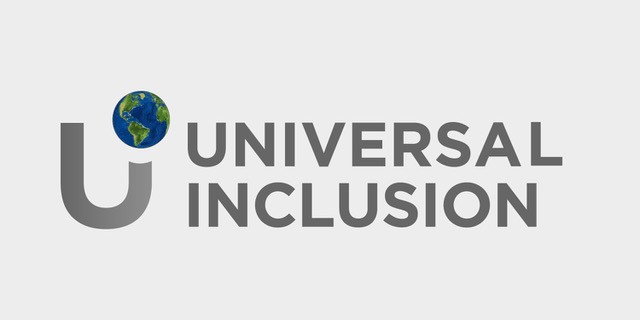
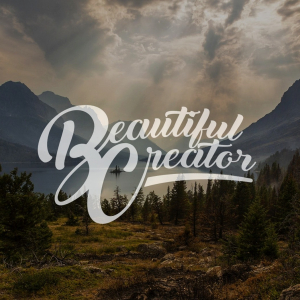

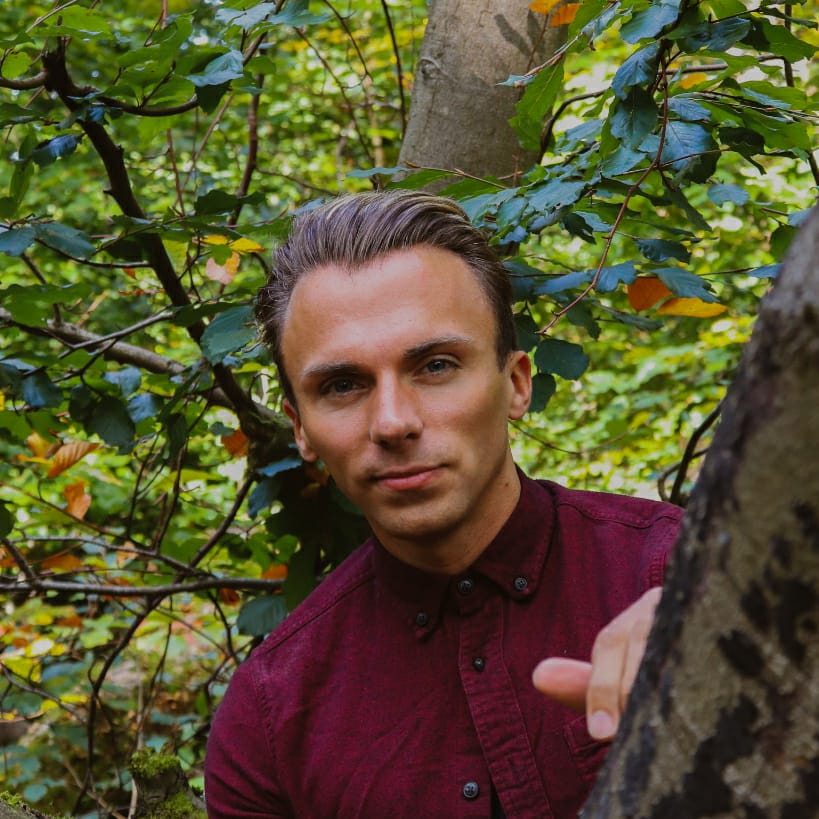 "I want to help people see there is a different way of being. I want to remove their fears, concerns and other barriers stopping them from finding the true joy within their lives. Through Beautiful Creator, I can use my skills to help other people get through any of life’s tribulations."
"I want to help people see there is a different way of being. I want to remove their fears, concerns and other barriers stopping them from finding the true joy within their lives. Through Beautiful Creator, I can use my skills to help other people get through any of life’s tribulations."
 It also has a legacy footprint of Inclusive Opportunities through its football in the community programme and Women’s football team.
It also has a legacy footprint of Inclusive Opportunities through its football in the community programme and Women’s football team.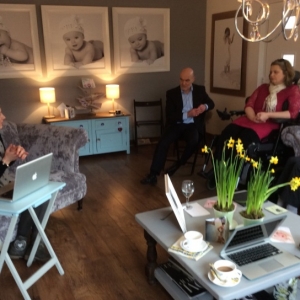
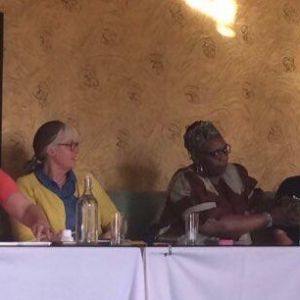
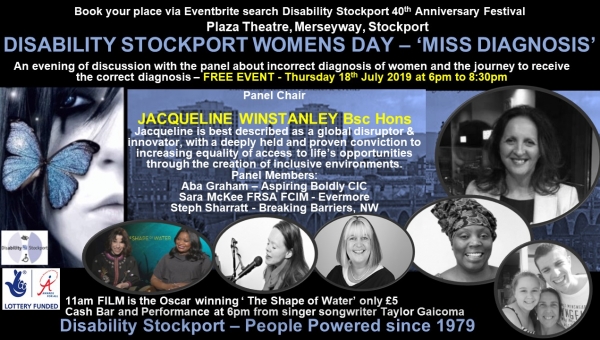 ‘Miss Diagnosis’ – Disability Stockport 40th Anniversary Festival
‘Miss Diagnosis’ – Disability Stockport 40th Anniversary Festival